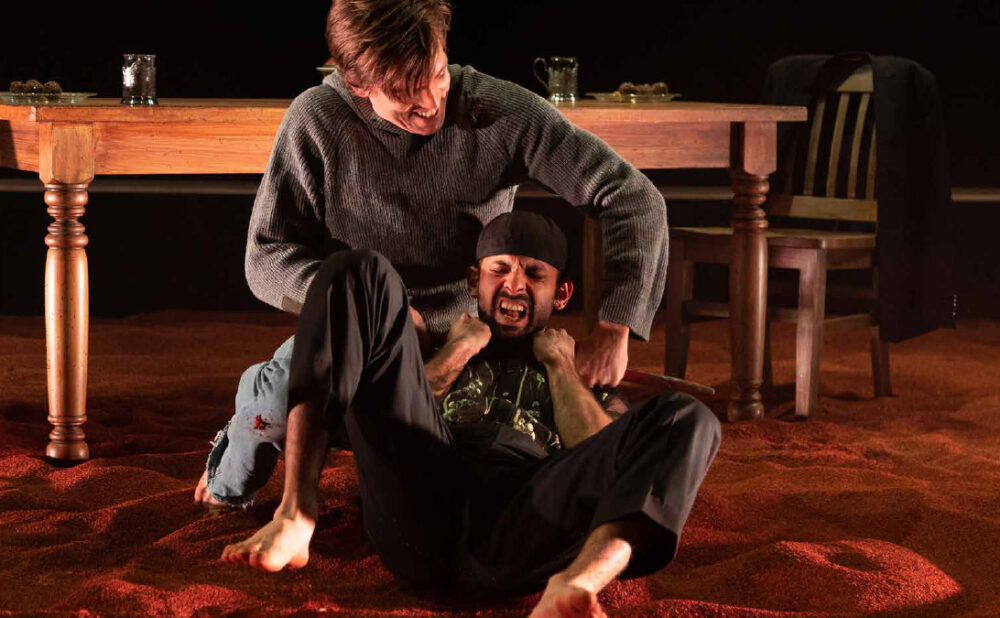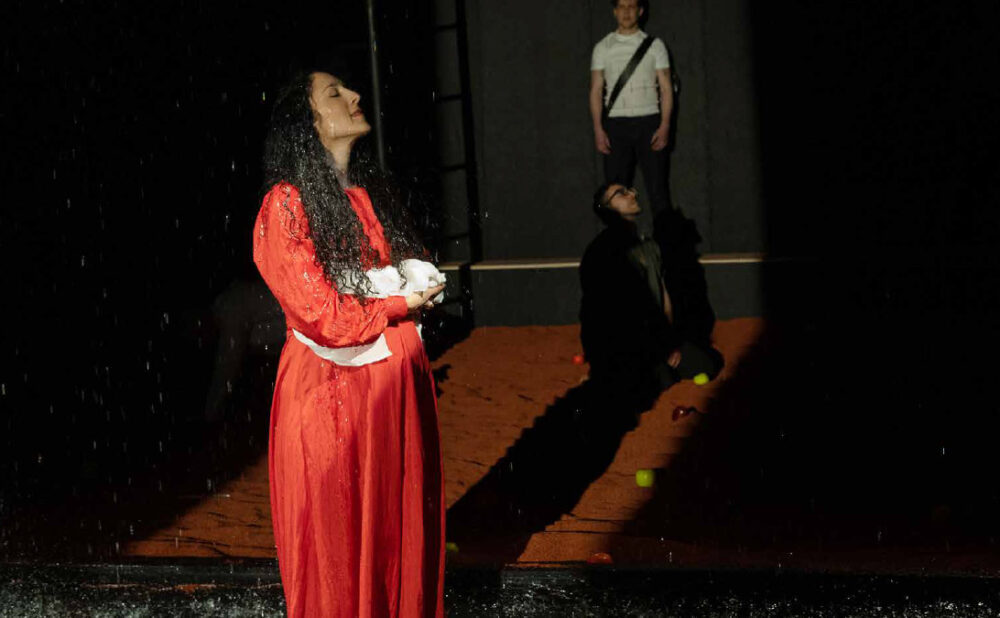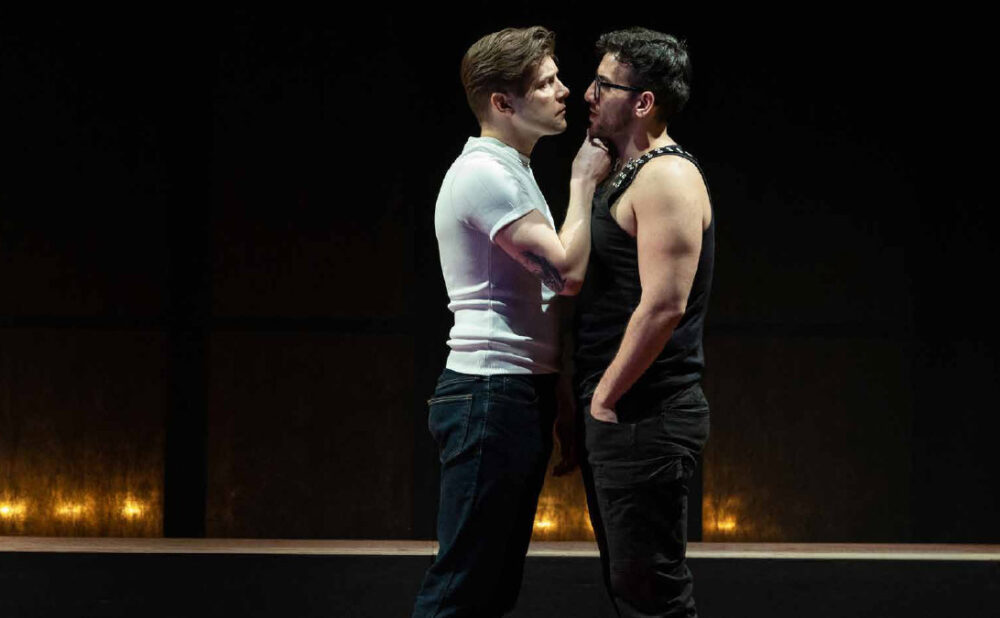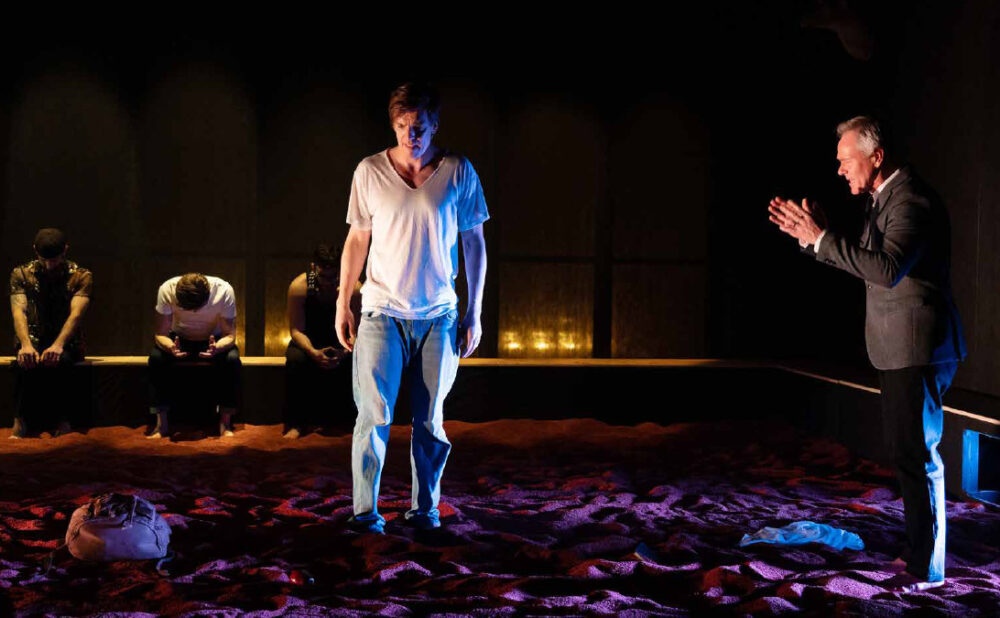‘The Hooves Belonged to the Deer,’ Tarragon’s latest, ethereally interweaves Alberta with the Garden of Eden
Makram Ayache’s debut play offers gorgeous, mature engagement with spirituality
What: The Hooves Belonged to the Deer
Where: Tarragon Theatre, 30 Bridgman Ave.
When: Now, until Sun., April 23
Highlight: Peter Hinton-Davis’s divine stage pictures
Rating: NNNN (out of 5)
Why you should go: The show’s fragmented structure is a compassionate crystallization of the various schisms that characterize queer adolescence.
TORONTO AUDIENCES HAVE SEEN their fair share of Adam and Eve over the last year. At the Toronto Fringe, Artaud-inspired Montreal company Mad Paradox performed a two-hander version of the story featuring nudity, abrasive sound design, pop-song karaoke and an assemblage of apples. Meanwhile, in a Tranzac Club backroom, indie musical theatre company Shifting Ground Collective produced a developmental reading of the pop-rock musical Leaving Eden, which investigates the couple from a feminist angle.
The new play The Hooves Belonged to the Deer, now playing at Tarragon Theatre in a co-production with Buddies in Bad Times Theatre, intermeshes the Quran’s Aadam (Noor Hamdi) and Hawa (Bahareh Yaraghi) with the prosaic life of Albertan teenager Izzy (Makram Ayache, also the playwright). Izzy is gay and uses Aadam and Hawa to think through his queerness in a safe way: playing on “Adam and Steve,” he imagines the disruptive arrival of a white man, Steve (Shepherd-Gawinski), to the Garden of Eden. In an ethereal production directed by Peter Hinton-Davis, these two opposite worlds overlap until they are nearly indistinguishable from one another, offering a moving dramatization of the way different belief systems intersect, harmonize and clash.
The narrative is refreshingly opaque. Instead of over-clarifying the leaps between Eden and Alberta with abrupt set and costume changes, Hinton-Davis takes a murkier, more courageous route: abstraction. Anahita Dehbonehie’s set is sparsely furnished but richly textured, a bed of red sand punctured by a wooden table and a ladder stretching up to a floating circle of light. To fill this empty space, the actors remain on stage even when not speaking — and though that’s something of a contemporary theatre trope, in this case, it helps further interweave the show’s two settings.
The show’s fragmented structure is a compassionate crystallization of the various schisms that characterize queer adolescence. As the adults in Izzy’s life — his Muslim parents, along with the well-meaning but misguided Christian Pastor Isaac (Ryan Hollyman) — project their beliefs onto him, the friction between the person Izzy is told he should be and the person he really is splinters his worldview and the stage image with it. Ayache’s percussive language deepens this sense of fragmentation: his short, end-stopped sentences demand sharp emotional shifts from clause to clause; so, as the play jumps between worlds, the cast is made to jump between emotional states.
Whittyn Jason’s stunning lighting design has a tactile, subterranean vibe. Small, barely-there pockets of spiritual glow pierce oceans of stifling darkness, tying together the play’s two worlds with tender ease. And, since most of the show is rather shadowy, brighter climactic moments arrive with a gleaming dash of revelation.
But The Hooves Belonged to the Deer is the rare Toronto show where design and direction seem to slightly outpace the performances. Though the whole cast is believable and clear, I longed for an approach that took a bigger stylistic swing, like the design. Instead, the acting style is more or less the Toronto usual, which feels a bit out of place in a show otherwise excitingly risky.
That said, The Hooves Belonged to the Deer is one of the year’s best-directed and -lit shows so far. With the help of Hinton-Davis’s divine stage pictures and Ayache’s crackling debut script, it movingly dramatizes the disarmingly polyphonic nature of human spirituality.









